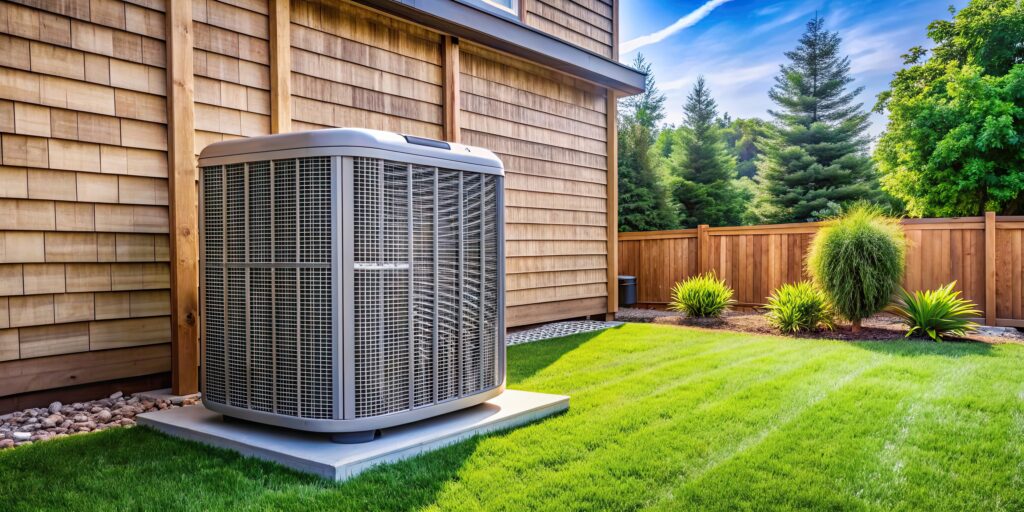An HVAC system is one of the most important investments you’ll make for your home, providing comfort year-round. However, many homeowners in Rockwall, TX, focus only on the upfront costs of installation and overlook the lifetime expenses associated with owning an HVAC system. To ensure you get the most out of your system without unexpected financial strain, it’s essential to plan for all the associated costs over its lifetime, including maintenance, repairs, and energy consumption. This guide will walk you through how to budget for your HVAC system from installation to eventual replacement.
What Are the Lifetime Costs of an HVAC System?
When budgeting for an HVAC system, it’s important to account for more than just the installation. The true cost of owning an HVAC system includes several key factors: installation, regular maintenance, energy bills, occasional repairs, and eventual replacement.
Installation is the largest upfront cost, but over time, maintenance and energy usage can add up significantly. By planning for these costs ahead of time, you can spread the financial burden and avoid unexpected expenses.

Installation Costs: The Upfront Investment
The first significant cost is the installation of your HVAC system, which includes the price of the unit itself and the labor required to install it. The total price depends on several factors, including the size of your home, the type of system you choose (such as central air conditioning or a heat pump), and whether any ductwork needs to be repaired or replaced.
In Rockwall, TX, homeowners can expect to pay between $3,000 and $10,000 for a new HVAC system installation, depending on the complexity and type of system. While this may seem like a large expense, choosing a quality, energy-efficient system can help reduce your long-term energy and maintenance costs. It’s important to consider energy-efficient models, as these can lead to savings on utility bills over the years.
Energy Costs: The Ongoing Expense
Your HVAC system’s energy consumption is a significant part of its lifetime cost. On average, heating and cooling account for nearly half of a home’s energy usage. This is why it’s important to choose an energy-efficient system with a high SEER (Seasonal Energy Efficiency Ratio) rating, as it can lower your monthly energy bills.
Budgeting for your energy costs involves looking at both the efficiency of your system and your personal usage habits. For example, if you frequently adjust the thermostat or use your system heavily in the summer and winter months, your energy costs will be higher. To reduce these expenses, consider using a programmable or smart thermostat, which helps optimize energy usage by adjusting the temperature automatically when you’re not home or while you sleep.
The lifetime energy cost of an HVAC system can vary, but it’s estimated that you may spend anywhere from $1,200 to $2,000 annually on energy bills, depending on the efficiency of your system and how often you use it.
Regular Maintenance: Preserving Efficiency and Preventing Problems
Routine maintenance is one of the best ways to ensure your HVAC system operates efficiently and lasts as long as possible. Without regular tune-ups, your system can lose efficiency and require more frequent repairs, leading to higher operating costs and shorter lifespan.
Most HVAC professionals recommend having your system serviced twice a year—once before the cooling season and once before the heating season. During these visits, a technician will clean the system, check for any worn-out components, and ensure everything is functioning correctly. The cost of these maintenance visits typically ranges from $100 to $300 per year.
By keeping up with regular maintenance, you can avoid costly breakdowns and extend the life of your system. Additionally, many manufacturers require proof of regular maintenance in order to keep your warranty valid, so skipping these check-ups could result in out-of-pocket expenses for future repairs.
Repairs: Planning for the Unexpected
Even with proper maintenance, every HVAC system will eventually require repairs. The cost of these repairs can vary significantly depending on the nature of the issue. For example, replacing a simple part like a capacitor or thermostat may cost a few hundred dollars, while more serious repairs, such as a compressor or blower motor replacement, can cost upwards of $1,000.
To budget for repairs, it’s a good idea to set aside a certain amount each year in an emergency fund for unexpected HVAC issues. A common recommendation is to budget 1% of your home’s value annually for maintenance and repairs, with some of that amount dedicated to your HVAC system. Having this money set aside ensures that you’re prepared for any unexpected problems that may arise.
System Replacement: The Inevitable Long-Term Cost
No matter how well you maintain your HVAC system, it will eventually need to be replaced. Most systems have a lifespan of 10 to 15 years, though high-quality units that are well-maintained can last even longer. When budgeting for the lifetime cost of your HVAC system, it’s important to plan for this eventual replacement.
The cost of replacing an HVAC system is typically similar to the initial installation—between $3,000 and $10,000. By planning for this expense in advance, you can avoid financial surprises when it comes time to upgrade to a new system. Setting aside money each year in a replacement fund can help ensure you have enough saved when your system reaches the end of its useful life.
- Installation costs: The initial investment in a new system, which typically ranges from $3,000 to $10,000.
- Energy costs: Ongoing expenses, often $1,200 to $2,000 per year, depending on system efficiency and usage habits.
- Maintenance costs: Annual tune-ups to keep your system running efficiently, typically $100 to $300.
- Repair costs: Unexpected issues that arise over time, which may vary from a few hundred dollars to over $1,000 for major repairs.
- Replacement costs: A long-term expense that can be mitigated by saving for a system replacement 10 to 15 years down the road.
Get Expert Advice from Apple AC & Heat Services
Budgeting for the lifetime costs of your HVAC system doesn’t have to be overwhelming. At Apple AC & Heat Services in Rockwall, TX, our experienced team can help you understand the long-term costs of owning an HVAC system and guide you in making the most cost-effective decisions. Whether you’re installing a new system, needing maintenance, or planning for a replacement, we’re here to help you every step of the way. Contact us today for expert advice and quality service.



